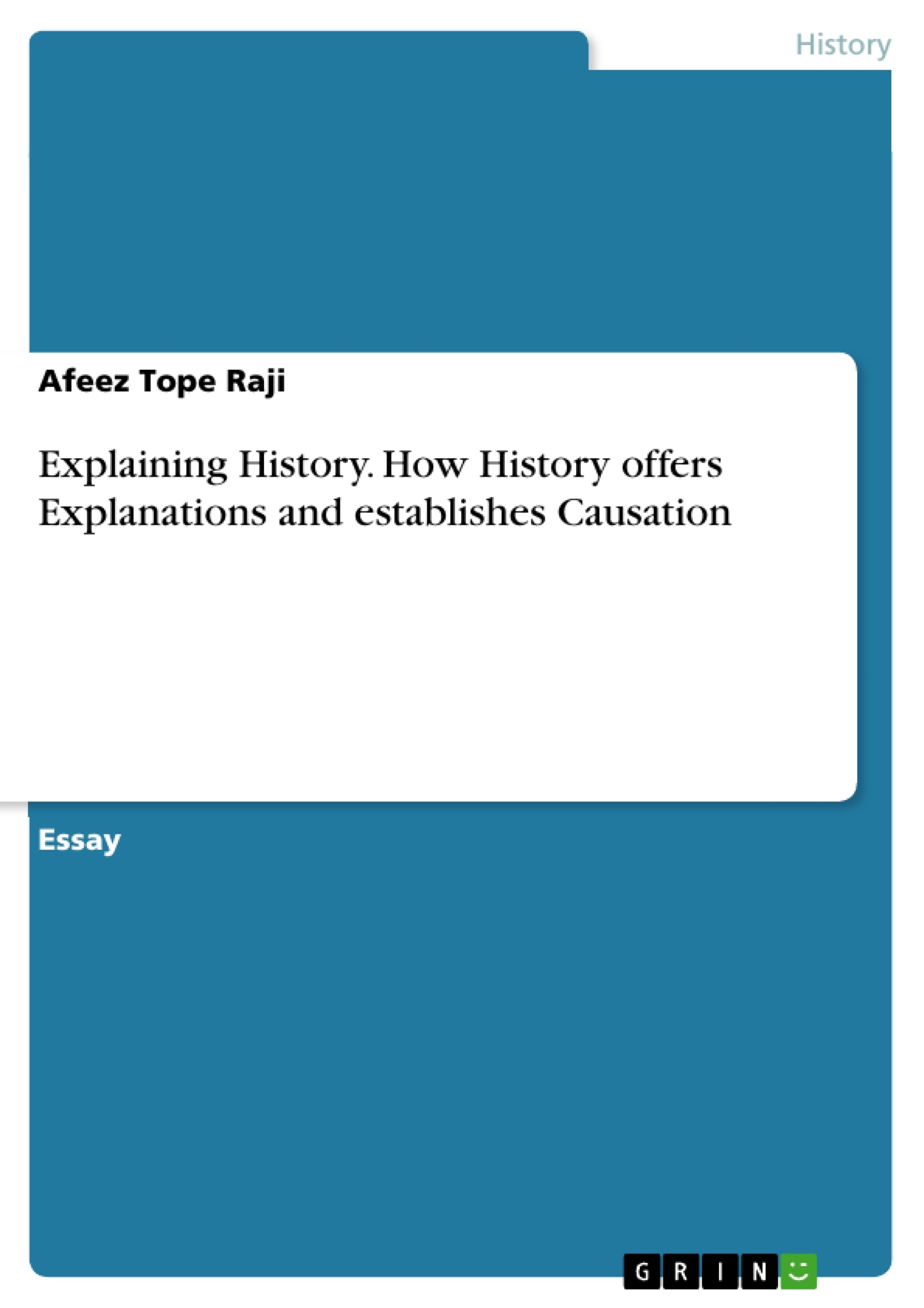This work attempts a conceptualization of Historical Explanation, and discusses its variants. It also attempts to solve the problem of significance of historical explanation by discarding the methodological view according to which the natural sciences have been solely subjected and also dispels explanation from the realm of social sciences as based solely on understanding. Rather, it supposes that an employment of both cores would produce a balance.
History is often seen especially by those outside the pitch as a vague venture and as such needs no serious scholarly attention. It is against this backdrop that this study seeks to analyze History in its explanatory context. It starts with a provisional conceptualization of History and Historical explanation, analyses the link between explanation and causation in Historical parlance, and describes the variants of the said explanation. The paper concludes that Historical explanation is but a core of understanding History for its students and critics.
Table of Contents
- Foreword
- Introduction
- Towards A Definition of Historical Explanation
- Historical Explanation: A Justification of Causation
- Causation
- Historical Explanation Variants
Objectives and Key Themes
This study aims to analyze the concept of Historical Explanation and its significance in understanding the past. It explores the relationship between explanation and causation, investigates different types of historical explanation, and ultimately argues that historical explanation is crucial for comprehending history.
- Conceptualization of Historical Explanation
- The role of causation in historical explanation
- Different types of historical explanation
- The importance of historical explanation for understanding history
- The distinction between historical explanation and scientific explanation
Chapter Summaries
- Foreword: This section introduces the study and its aim to analyze history in its explanatory context. It argues that history is not a vague venture and deserves serious scholarly attention.
- Introduction: This chapter discusses the importance of conceptualizing historical explanation and explores its variants. It proposes that historical explanation is a balanced approach combining methodological views from natural sciences and social sciences.
- Towards A Definition of Historical Explanation: This section examines different definitions of history and proposes Marwick's definition as a suitable starting point. It emphasizes the role of description and interpretation in understanding past events.
- Historical Explanation: A Justification of Causation: This chapter argues that historians are tasked with explaining past events and that causation is a fundamental element of historical explanation. It highlights the importance of causal relationships in understanding history.
- Causation: This section explores the concept of causation as a central pillar of historical explanation. It emphasizes the role of individuals, groups, and ideas in shaping historical events.
- Historical Explanation Variants: This chapter discusses different perspectives on historical explanation, including the Covering Law Theory, Rational Explanation, and Structural-Effect Explanation. It explores the various approaches to explaining historical events.
Keywords
Key words and focus topics of this study include historical explanation, causation, historical science, covering law model, rational explanation, structural-effect explanation, social structure, and historical narrative.
- Quote paper
- Afeez Tope Raji (Author), 2019, Explaining History. How History offers Explanations and establishes Causation, Munich, GRIN Verlag, https://www.grin.com/document/506968



